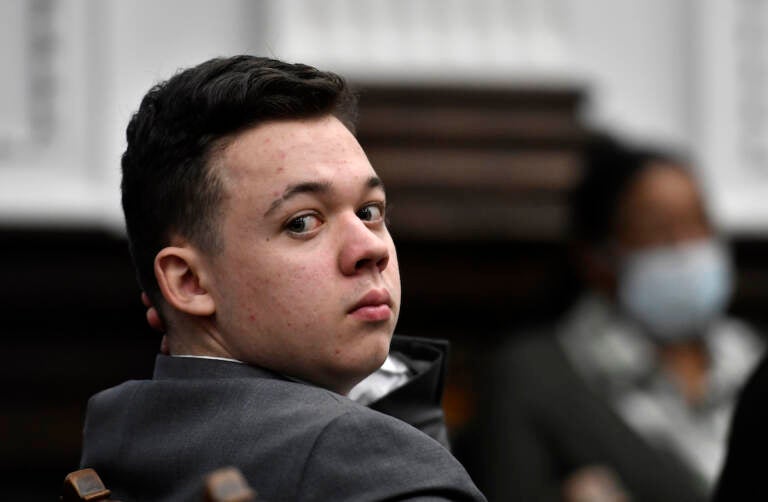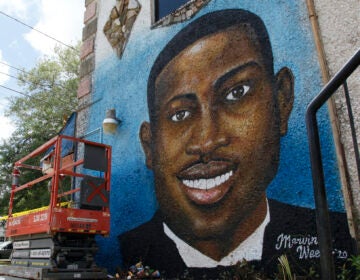Self-defense, vigilantism and the law
The trials of Kyle Rittenhouse and the three men accused of killing of Ahmaud Arbery raise important questions about self-defense, vigilantism, racial bias and gun rights.
Listen 49:00
Kyle Rittenhouse looks back as attorneys argue about the charges that will be presented to the jury during proceedings at the Kenosha County Courthouse in Kenosha, Wis., on Friday, Nov. 12, 2021.(Sean Krajacic/The Kenosha News via AP, Pool)
The trials of Kyle Rittenhouse and the men accused of killing Ahmaud Arbery raise many intersecting issues around self-defense and vigilantism, race and guns. Rittenhouse, who fatally shot two men and wounded another at protests in Kenosha following the police shooting of a Black man, claims he feared for his life. Greg and Travis McMichael and William Bryan, the white men who chased and shot Ahmaud Arbery, who is Black, say they suspected Arbery of burglary, were trying to make a citizen’s arrest and shot him when he reached for their guns. This hour, we explore the history and laws around self-defense, stand-your-ground, and citizen’s arrest and discuss how the Second Amendment is reshaping them. And we’ll look at how racial bias is playing out in both cases. Our guests are SUSAN LIEBELL, professor of political science at Saint Joseph’s University, SAMUEL BUELL, law professor at Duke University, and SCOTT CHARLES, a gun violence educator and trauma outreach manager at Temple University Hospital.
WHYY is your source for fact-based, in-depth journalism and information. As a nonprofit organization, we rely on financial support from readers like you. Please give today.





